Capsules for Filling: An Overview
Capsules for filling, small hollow containers utilized across industries, serve the purpose of safeguarding various products like medications and food supplements while ensuring easy consumption. These capsules are either filled with contents or dissolve within the body, catering to the needs of manufacturers, pharmacists, and businesses seeking convenient and hygienic packaging solutions.
The core concept of capsules for filling is simple: these containers, crafted from materials such as gelatin or plastic, are filled with intended substances and sealed to prevent any leakage or contamination. The filling process can be manual or automated, depending on production volume and product specifications.
Available in diverse sizes, shapes, and colors, capsules for filling play a pivotal role in the pharmaceutical sector, enabling precise dosing and effortless administration. These capsules find applications not only in human health products but also in veterinary medicine and dietary supplements.
Varieties of Capsules for Filling
Diverse types of capsules for filling cater to specific applications, each designed with unique characteristics:
-
Hard Gelatin Capsules: The most prevalent in pharmaceuticals, these capsules, composed of gelatin and water, offer versatility in accommodating various drug formulations. They can be customized with colors, opacifiers, and additives to meet branding requirements.
-
Vegetarian Capsules (HPMC Capsules): A plant-based alternative to animal-derived capsules, these capsules made from hydroxypropyl methylcellulose (HPMC) offer functions similar to hard gelatin capsules albeit at a higher cost.
-
Enteric-Coated Capsules: Designed for medications causing gastric irritation, these capsules have a special coating that resists stomach dissolution and only dissolves in the intestines, ideal for drugs needing protection from stomach acid.
-
Flavored Capsules: Infused with flavors to mask the taste of medications or supplements, these capsules are popular in the nutraceutical industry where palatability is crucial.
-
Delayed-Release Capsules: Formulated for gradual content release, these capsules are suitable for extended-release formulations, preventing rapid drug breakdown in the stomach for targeted delivery.
Selecting Capsules for Filling
Choosing the appropriate capsules for your enterprise entails evaluating factors like material compatibility, size, capacity, environmental resilience, and specific features aligning with product requirements.
Pharmaceutical firms opting for capsule encapsulation should prioritize inert, stable materials. Gelatin capsules, biodegradable and capable of controlled dissolution, are a popular choice. However, offering vegetarian options like HPMC or pullulan can cater to specific dietary preferences.
Cosmetic brands should focus on eco-friendliness by selecting biodegradable materials like plant-based PLA or starch-based capsules. Considerations such as size and customization options, including color and printing, are crucial for brand alignment and functionality.
For food-grade capsules, adherence to safety standards and dietary requirements such as halal or kosher is paramount to ensure product compliance.
Exploring Capsules for Filling on Alibaba.com
Alibaba.com, a global marketplace facilitating B2B transactions for over two decades, connects businesses with suppliers offering a wide range of capsules for commercial use. From pharmaceutical-grade gelatin capsules to eco-friendly options, Alibaba.com ensures a vast selection catering to diverse needs.
With a focus on secure trading through services like Trade Assurance, Alibaba.com serves as a reliable partner supporting small and medium-sized businesses globally, offering tailored trading experiences that foster growth and success in the international market.
Frequently Asked Questions about Capsules for Filling
Common Materials for Capsule Manufacturing:
Capsules are commonly made from materials like gelatin, hypromellose, and vegetable cellulose, each offering unique benefits tailored to various needs and restrictions.
Determining Capsule Size:
Choosing the right capsule size depends on dosage requirements and active ingredient quantities, ensuring alignment with standard dosages.
Customization for Branding:
Suppliers often offer customization options such as logo printing and unique formulations to align capsules with brand identities.
Eco-Friendly Capsule Options:
Environmentally conscious consumers can opt for eco-friendly capsules made from materials like vegetable cellulose or plant-based gelatin alternatives.
Ensuring Capsule Quality:
To guarantee quality, seek suppliers providing comprehensive details on manufacturing processes, raw material sourcing, and quality control measures, including third-party testing when needed.
Shelf Life of Capsules:
The shelf life of capsules varies based on material and storage conditions, typically recommended for use within 1 to 2 years from purchase.
Choosing Printing Handling for Capsules:
Consider the visibility and readability of printed information when selecting between different printing handling options, tailored to specific capsule types and uses.
Impact of Surface Handling on Capsules:
Select surface handling like glossy lamination or UV coating to enhance capsule aesthetics and durability, complementing product presentation and longevity.
Ordering Capsules for Specific Age Groups:
Ensure capsules designed for children or specific age groups meet size, shape, and safety requirements suitable for the intended users.
Sampling Capsules before Bulk Purchase:
Many suppliers allow businesses to order samples for quality assessment before committing to larger purchases.
Assistance with Design and Printing:
Some suppliers on Alibaba.com offer design and printing services for custom labels on capsules, providing tailored solutions for branding needs.
Printing Handling Services for Capsules:
Suppliers may offer various printing services such as screen printing, hot stamping, UV coating, and matte lamination to cater to diverse customization needs.
Choosing between Joined or Separated Capsules:
The decision between joined or separated capsules hinges on the need for single-dose units or flexibility in opening capsules before use, considering product convenience and dosage requirements.
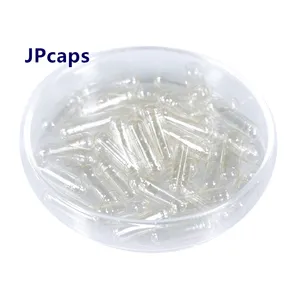
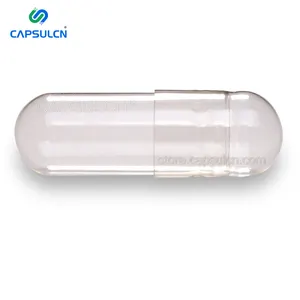



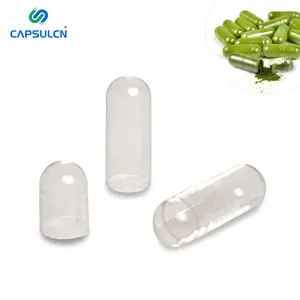




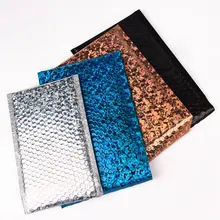
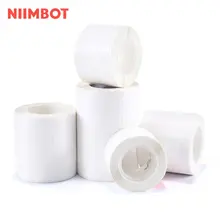



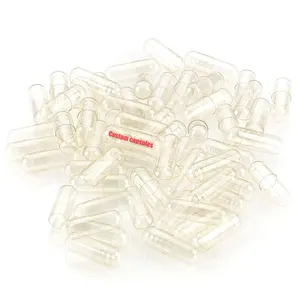























 浙公网安备 33010002000092号
浙公网安备 33010002000092号 浙B2-20120091-4
浙B2-20120091-4